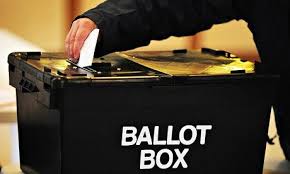The Labour Party have taken overall control of Trafford Council while in Stockport, both the Lib Dem’s and Labour are tied on the same number of seats.
It’s a been a night of vote counting across Greater Manchester with nine of the ten local authorities declaring their results, Manchester Council count today.
The big stories are in Trafford and Stockport,Labour taking overall control in the former while in Stockport finds its keg tied neck and neck with the Lin Dems.
The Tories all nine wards they were defending with six seats going to Labour to give the party overall control of the for the first time since 2003.
Sir Graham Brady, Conservative MP for Altrincham and Sale West, said that “dissatisfaction with the national scene was massively at play”.
In Stockport, it could well be all change after both Labour and the Lib Dems finished neck and neck on 26 wards each and the next annual council meeting will decide which party will run the local authority.
Labour lost overall control of Bolton Council as well but remain the largest party.
In Salford Labour have a majority of 40, the one shock bring the ejection of a Green candidate in the Irlam ward, while in Bury,Labour now have a majority of seven seats.
Labour and the Conservatives both lost one seat overall while the Liberal Democrats and Independents each gained one.
The new balance on Bury Council is: Labour 29 seats, Conservatives 16, Liberal Democrats 4 and Independent 2.
In Oldham the composition of the new council stands at Labour 45 Liberal Democrats, Conservative 4 and Independent 3, the biggest shock coming in Failsworth East where Labour’s education spokesman lost to an Independent candidate.
Manchester Council saw thirty two of the thirty three wards taken by Labour, Greg Stanton though increasing the Lib Dem representation to three out of ninety six winning in Didsbury West.
Nationwide the Conservatives are down by over 500 councillors compared with 2015, while Labour has lost over 70 seats but the The Liberal Democrats have so far gained over 300 councillors, the party’s biggest gain since 1995.
DR BEN Williams, Lecturer in Politics and Political Theory at the University of Salford, comments as local election results show both Conservative and Labour losing councillors across the country.







